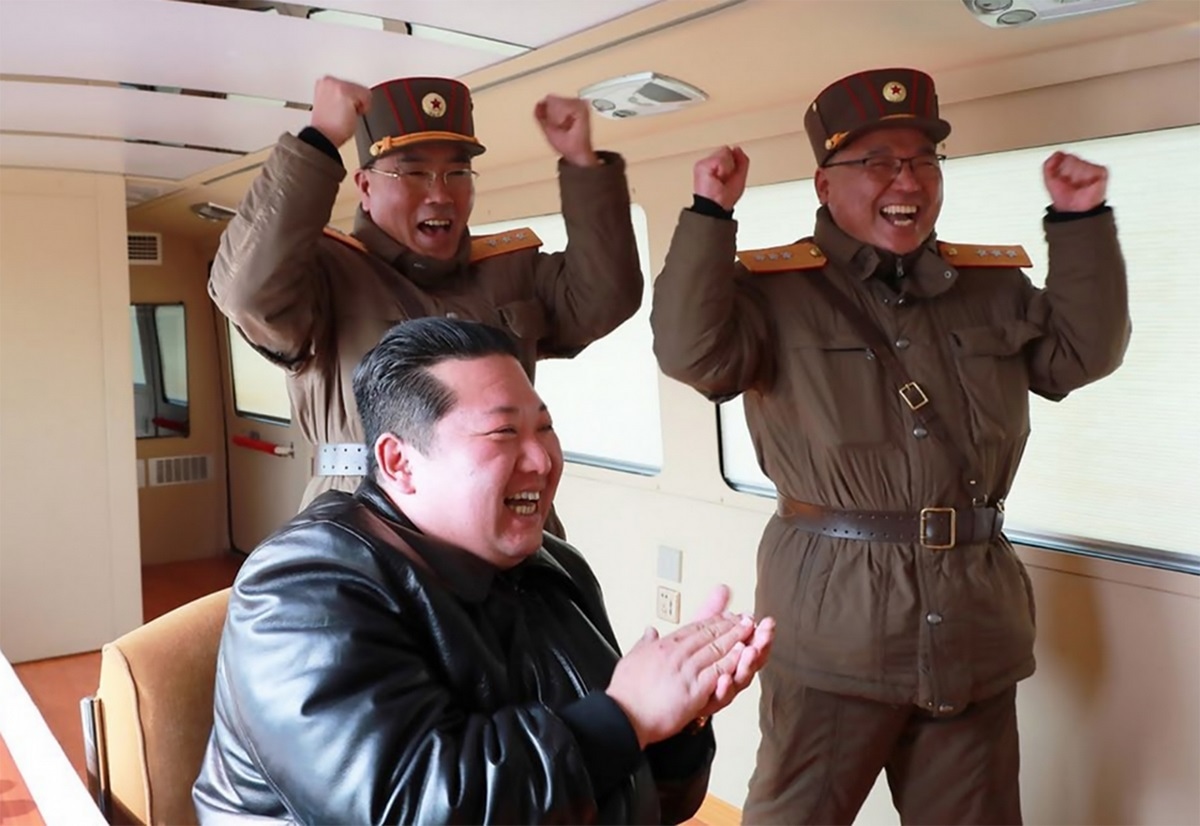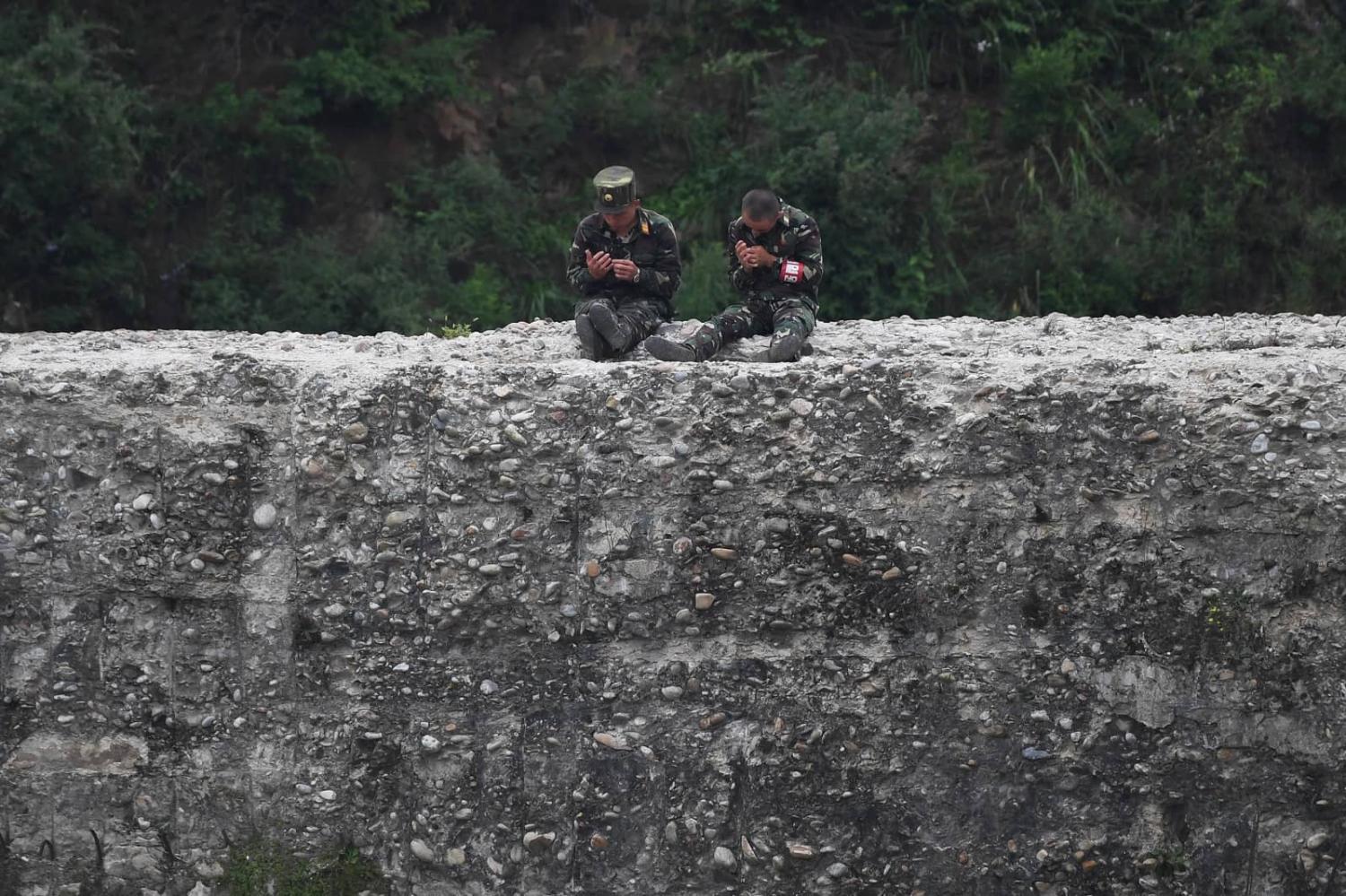Since coming to power in late 2011, North Korea’s Kim Jong-un has celebrated more successful missile launches and nuclear tests than both his predecessors combined. Less noticed around the world, however, has been Kim’s ambition to change North Korea’s domestic order. We cannot know what he thinks, but judging by the pattern of his actions, he seeks to take North Korea closer to the era of Kim Il-sung, the country’s first leader, when the state held a firm, more totalitarian grip over society. Implementing this vision will not be simple and the state may eventually reverse course, realising the popular backlash that could follow if it attempted to control the country’s markets more closely.
One of the most symbolic results of these ambitions was a report by Reuters earlier this month, showing that North Korea had built a wall along parts of the border with China. Constructed since the start of the pandemic, the wall is intended to stop people from smuggling goods and fleeing the country via border routes that have commonly been used for such illicit activities. The border wall, however, is but one of many components in a broader strategy to take back state control over the distribution of resources.
For a dictatorship such as North Korea, controlling who gets what is a key part of the system: wealth and resources are to be shared among those who are politically loyal, primarily the Korean Workers’ Party elite centred in Pyongyang. The country’s family background registration system, sŏngbun, is one of the main ways the state seeks to regulate this. People with politically trustworthy family backgrounds are placed at the top of an elaborate (but often fractured and inefficient) class ladder that determines access to social opportunities and, to a large extent, economic resources. The people at the bottom of the ladder, who are considered politically suspect, are largely denied access to higher education, Party membership, and other avenues for social improvement.
With the collapse of the centrally planned economy in the early 1990s, however, the state largely lost control of resource distribution. Those outside the elite, particularly in the peripheral regions furthest from the capital, were often left to fend for themselves after state-provided food rations ceased. In an ironic twist, this led to new, lucrative opportunities for some in the borderlands who were ranked very low on the state’s class ladder.

Exact numbers are not known, but some North Koreans have amassed considerable wealth through smuggling activities across the border, importing high-quality goods from China and selling them on the country’s grey markets. These markets sprang up spontaneously as North Koreans were forced to trade for their survival during the famine of 1994-98, and the state has subsequently sought to incorporate them into the formal economy by providing infrastructure for the markets and regulating trade through a system of permits and taxation.
Closing the border tightly to inhibit unauthorised crossings is a key part of this process. As Peter Ward and I show in a recent study, controlling the border has been high on Kim’s list of priorities during his tenure, causing the number of North Korean defections to drop to record low levels since people began leaving in meaningfully large numbers in the late 1990s. By dramatically tightening border controls – originally to keep the Covid-19 virus out – the state has been able to ensure that only those it wishes to reward can become wealthy.
The border wall is one of a wide range of measures that Kim has taken in the past few years to increase state control over the economy and society, and to keep foreign influences out. Particularly since 2019, Kim’s rhetoric has emphasised the need to increase state control and oversight of the economy, and to struggle harder against “capitalist tendencies” such as foreign media and culture. It remains doubtful whether this will succeed. The border, after all, became porous in the 1990s not for lack of infrastructure but mainly because border guards became susceptible to bribes to overlook smuggling and defections.
Although penalties have become stricter under Kim’s anti-corruption campaign, the North Korean system remains thoroughly corrupt, not least because the state cannot pay border guards and other security personnel enough for them to live on. Policy implementation is difficult in North Korea, where dilapidated infrastructure and communications networks often mean that the state is rather absent in the regions furthest from Pyongyang.
Whether Kim will succeed in this social revolution, changing the distribution of resources and wealth, remains a question. Along the way, however, an already difficult economic situation may become even more dire as the state continues to keep the border shut and maintain overall trade levels much lower than before the pandemic. Smuggling is essential to the market economy, especially in the border regions. Whatever the result of Kim’s plans, North Korea’s most vulnerable populations stand to lose the most.

